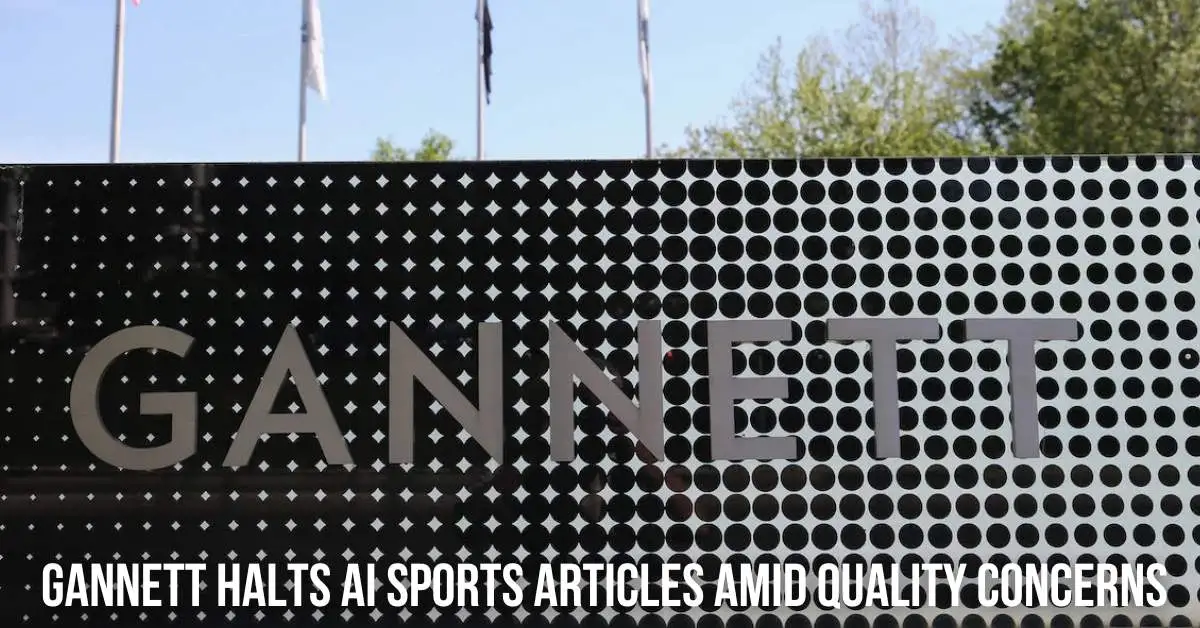Gannett, a prominent name in the media industry, has decided to temporarily halt its AI experiment following a series of ethical and technical apprehensions. This move highlights the intricate balance that companies strive to strike between harnessing artificial intelligence’s potential and ensuring responsible deployment.
The Pause in Gannett’s AI Journey
In a surprising turn of events, Gannett has chosen to pause its AI experiment, which was aimed at automating certain news articles. The decision follows an internal evaluation that identified several concerns, ranging from the quality of AI-generated content to the potential displacement of human journalists. This intermission underscores the evolving landscape of AI implementation and the importance of addressing its implications thoughtfully.
Quality Quandaries and Ethical Dilemmas
One of the primary concerns that prompted the pause was the quality of AI-generated articles. Despite the advancements in AI, the technology still struggles to replicate the nuanced and contextual understanding that human journalists bring to their work. This gap in quality can compromise the credibility and authenticity of news articles, raising ethical questions about the responsibility of media organizations to deliver accurate and reliable information.
The Human Element in Journalism
Gannett’s decision to pause the AI experiment reflects a broader debate within the media industry about the role of human journalists in the age of AI. While automation can streamline certain processes, human journalists provide the critical element of discernment, critical thinking, and empathy that’s essential in reporting complex stories. The distinct ability to ask probing questions, uncover hidden nuances, and connect with sources emotionally remains a cornerstone of impactful journalism.
Navigating Technological Limitations
AI, though revolutionary, is not exempt from limitations. The complexity of human language, the subtleties of tone, and the contextual understanding required in journalism present challenges that AI algorithms are still grappling to overcome. Gannett’s decision to pause the experiment highlights the importance of acknowledging and addressing these limitations before AI can seamlessly integrate into newsrooms without compromising content quality.
Preserving Journalism Integrity
Journalism’s core tenets include accuracy, fairness, and accountability. The rapid integration of AI into news production raises concerns about the potential erosion of these principles. Gannett’s move to halt its AI experiment demonstrates a commitment to upholding the integrity of journalism by ensuring that technology aligns with these fundamental values.
The Public’s Trust and AI
A critical aspect of journalism is maintaining the public’s trust. While AI can expedite news delivery, it also has the potential to amplify misinformation if not properly managed. Gannett’s pause sends a message that media organizations must prioritize the public’s trust over rapid adoption. Ensuring that AI-generated content meets the same rigorous standards as human-generated content is pivotal in fostering a trustworthy media ecosystem.
Lessons for the Industry
Gannett’s decision offers valuable insights for the broader media industry. It underscores the necessity of a cautious and considerate approach when incorporating AI. Rushing into AI implementation without addressing its limitations can lead to unintended consequences that might outweigh the initial benefits. Gannett’s pause serves as a reminder that while AI holds immense promise, it must be wielded judiciously.
The Road Ahead
As Gannett hits the pause button on its AI experiment, the industry at large stands at a crossroads. This pause presents an opportunity for reflection, adaptation, and refinement of AI strategies. Gannett’s willingness to reassess its approach demonstrates a commitment to responsible AI adoption that prioritizes the values of journalism and the well-being of its audience.
Conclusion
Gannett’s decision to temporarily halt its AI experiment serves as a noteworthy event that resonates throughout the media and technology sectors. This move highlights the multifaceted challenges posed by AI in journalism, from content quality and ethical considerations to the preservation of human expertise. As Gannett navigates these complexities, the broader industry watches closely, drawing important lessons about striking the right balance between innovation and responsibility in the era of artificial intelligence.



